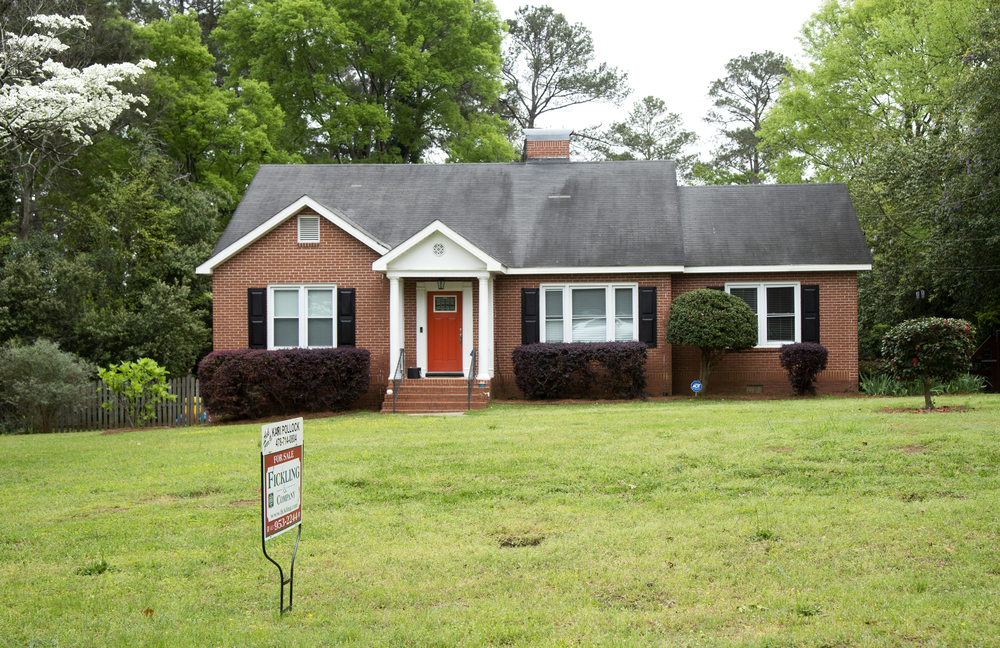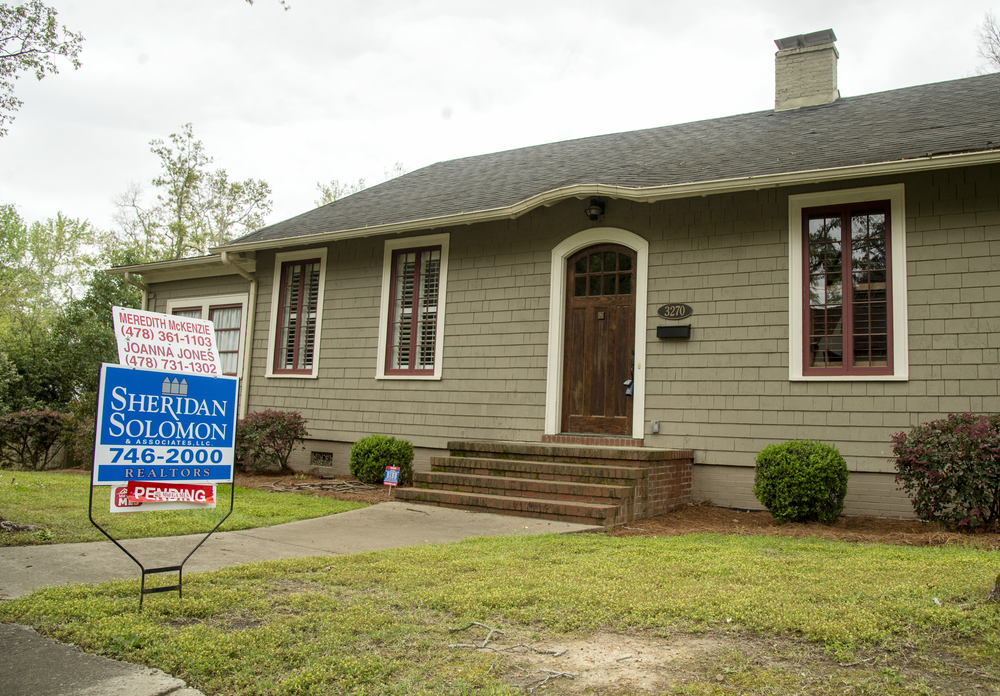
Caption
It’s a complicated picture: fewer homes are being built due to the high price on construction materials and, in Macon, a lack of developed lots, while appetite for new homes is high.
Credit: Jason Vorhees/The Telegraph

It’s a complicated picture: fewer homes are being built due to the high price on construction materials and, in Macon, a lack of developed lots, while appetite for new homes is high.
Any way you look at it, it's more difficult to buy a home in Macon than it was last year. And more expensive.
According to Mid Georgia MLS, in February 2020, there were more than 521 homes for sale and in Macon. This February, there were just over 300 available, but the average sale price went from around $141,550 to more than $179,350 in February 2021.
Macon’s housing shortage is both a reflection of national trends and a unique blend of local realities. The New York Times reported earlier this year that the number of available homes has fallen steeply in cities across the country. Available homes for sale in Atlanta fell from more than 20,000 before the pandemic to fewer than 9,000.
It’s a complicated picture: Fewer homes are being built due to the high price on construction materials and, in Macon, a lack of developed lots, while appetite for new homes is high. During the pandemic, houses became offices and schools too, so people want bigger homes, or if they’re renting, they want to buy. And low interest rates mean home ownership is an option for more people.
The lack of houses for sale means some Macon homes are getting multiple offers above listing price, according to Steve Solomon, president and CEO of Sheridan Solomon & Associates Realtor.
“There's a great opportunity, due to interest rates being low, to buy more ‘house’ than you could in a higher interest rate climate,” he said. “The difficult part is the supply… It kind of impedes your negotiating power.”
Delois Harmon, owner of Harmon & Harmon Realtors, Inc., was recently working with a couple to help them buy a house in Byron.
The home had 11 offers on the table, so the couple submitted an offer for $15,000 above the seller’s asking price with the contingency that if the home didn’t appraise for that much money, the buyers would offer another $5,000 to make up the difference.
“The values of the properties have increased because of what the buyers are willing to pay,” she said.

Millenials are buying and Baby Boomers aren't selling.
Once a buyer successfully makes an offer on a house that the seller accepts, they might run into issues if the house appraises for less than the buyer offered. Either the buyer has to make up the difference, the seller agrees to take a lower offer, they meet somewhere in the middle or the offer falls through.
Anna Roberts, owner of Rivoli Realty, said it’s definitely a seller’s market.
“It's hard on buyers right now. They get very frustrated when every time they try to buy something, there’s five, six, nine offers on something,” she said. “For the sellers, it's great, and they get top dollar as long as they've done their homework before they put it on the market.”
Although Roberts agrees that there is a need for new construction and builders are in high demand, she believes the housing shortage is related to more issues stemming from the coronavirus pandemic, including forbearance on mortgage payments and people wanting to stay in comfortable environments.
People are simply not selling their homes, while renters are looking to buy.
“We definitely need more homes on the market. Rates are as low as they've been in my 32 years in the business,” she said.
But there’s a reason you don’t see a lot of new home construction in Macon. The cost of everything from building materials to appliances has increased since March 2020. Barney Bennett, the president of the Home Builders Association of Middle Georgia and owner of BO Bennett Homes noted that lumber is twice as expensive, while other materials have tripled in cost.
“The price for framing a new house is basically doubled or a little more just in the rough lumber cost. Other things have gone up across the board,” he said.
Factory items like windows, appliances and plumbing fixtures are on backorder, with builders waiting three to four months to get some appliances.
“It is kind of like the wholesale version of last year when you went to the grocery store and couldn’t find toilet paper,” Bennett said. “We can’t go to the supply houses and find the things that we need to finish or complete the houses. It’s a challenge.”
Bennett said new home construction in Bibb County was slow before COVID-19 hit, adding that most homes in the area are built by independent companies that rely on others to develop lots.
“The availability of lots in Bibb County has been declining for a while. You haven’t really had subdivisions or streets being developed. So builders haven’t really had that option,” he said. “There is a shortage. Every real estate agent will tell you there is a shortage of houses at a certain price point in Bibb County.”
Suzanne Beers, the executive director of Middle Georgia Multiple Listing Service, said Macon’s housing shortage isn’t simply a byproduct of the pandemic, however.
“A lot of people feel like it's pandemic related, but it's kind of been in the making for a decade, honestly,” she said. “When the [housing] bubble burst about 12 years ago, home builders just kind of quit building as much, so we've just been really under-built for a long period of time,” she said.
As millennials are buying homes, bringing with them five to 10 years of demand that wasn’t being satisfied by new construction, baby boomers aren’t selling their properties, she said. The housing market is especially challenging for first-time home buyers because it’s more difficult to find houses in their price range.
It doesn’t look like that’s going to change any time soon, Wesleyan College associate professor of business and economics Ying Zhen said. Low interest rates will continue as a response to pandemic-induced unemployment. Compared to the rest of the country, it’s still relatively cheap to purchase or rent homes in Macon, she said, and it’s difficult to determine whether housing and employment trends will continue.
“It’s not clear if the demand for houses will continue or reverse as people continue to work from home and unemployment rates change. Buying a home is a big investment,” she said.
Additional reporting by Justin Baxley, Tamari Perrineau, and Caleb Slinkard.
This story was published as part of a series on housing in Middle Georgia by Mercer’s Center for Collaborative Journalism and CCJ partners Georgia Public Broadcasting, 13WMAZ and the Macon Telegraph.